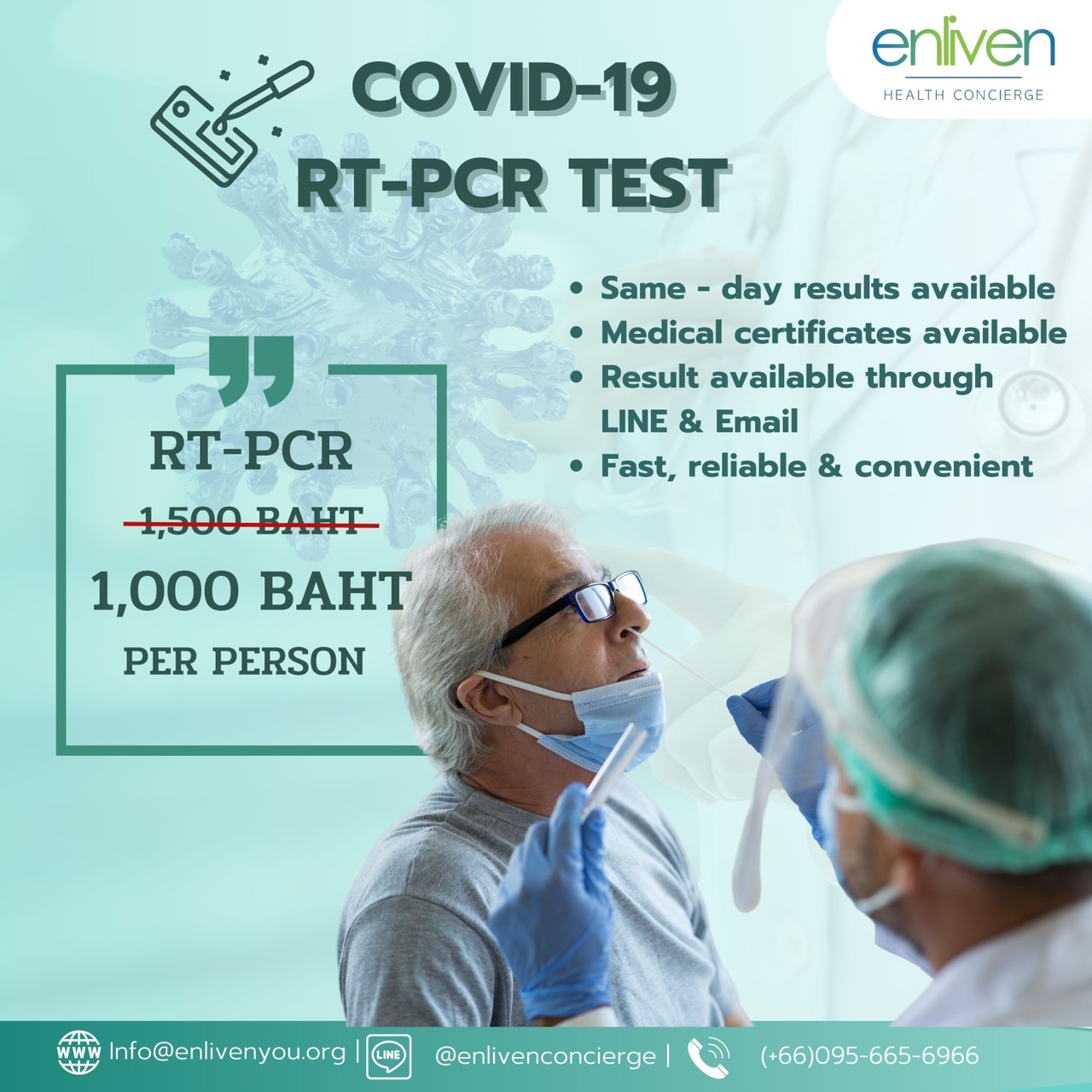In light of the current COVID9 wave in Thailand and the overwhelm the healthcare system is experiencing, Enliven Health Concierge advises you to follow these steps before deciding to take a COVID19 Test. If you do need to take one, we are here to help arrange it!
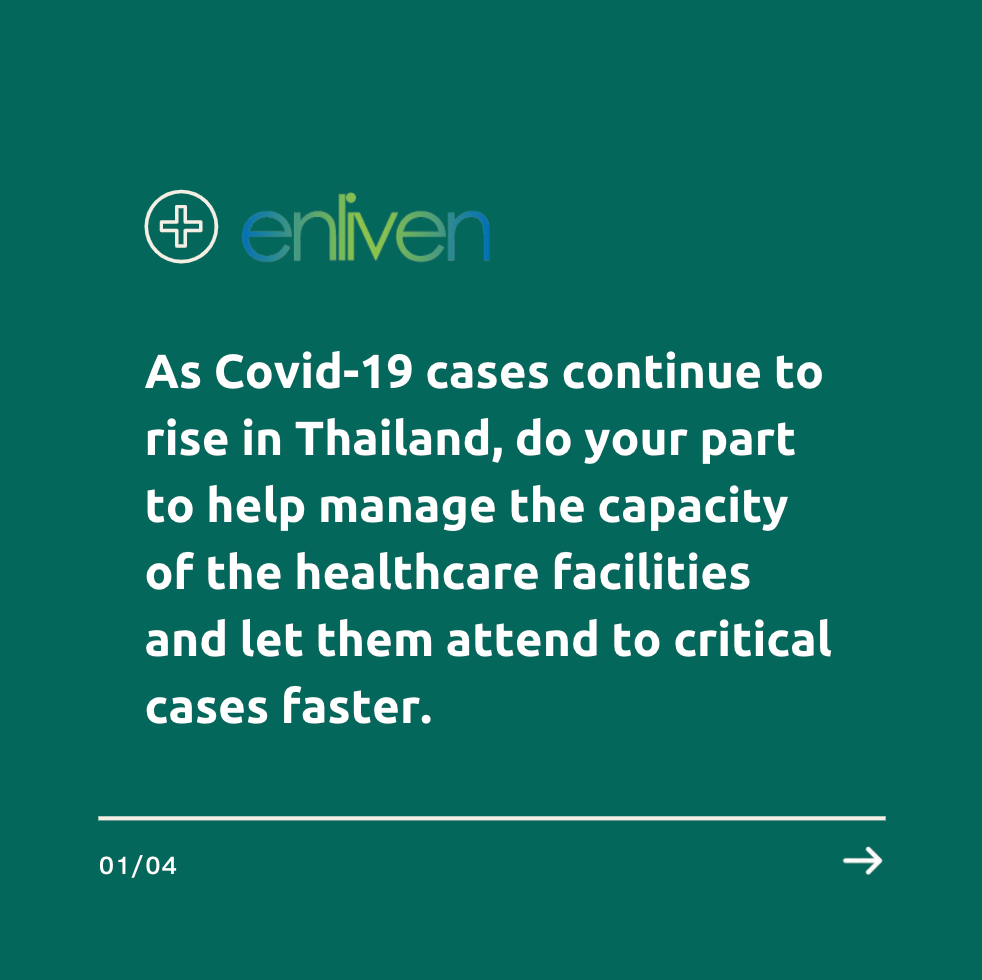
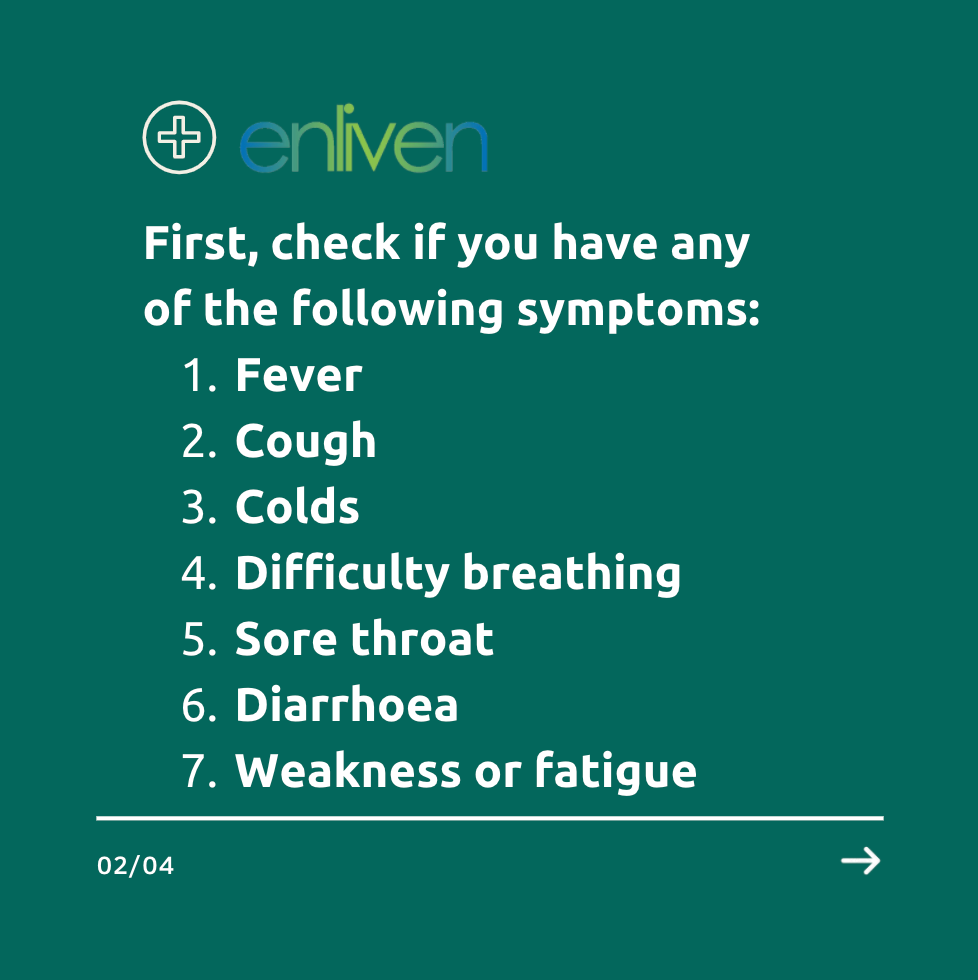
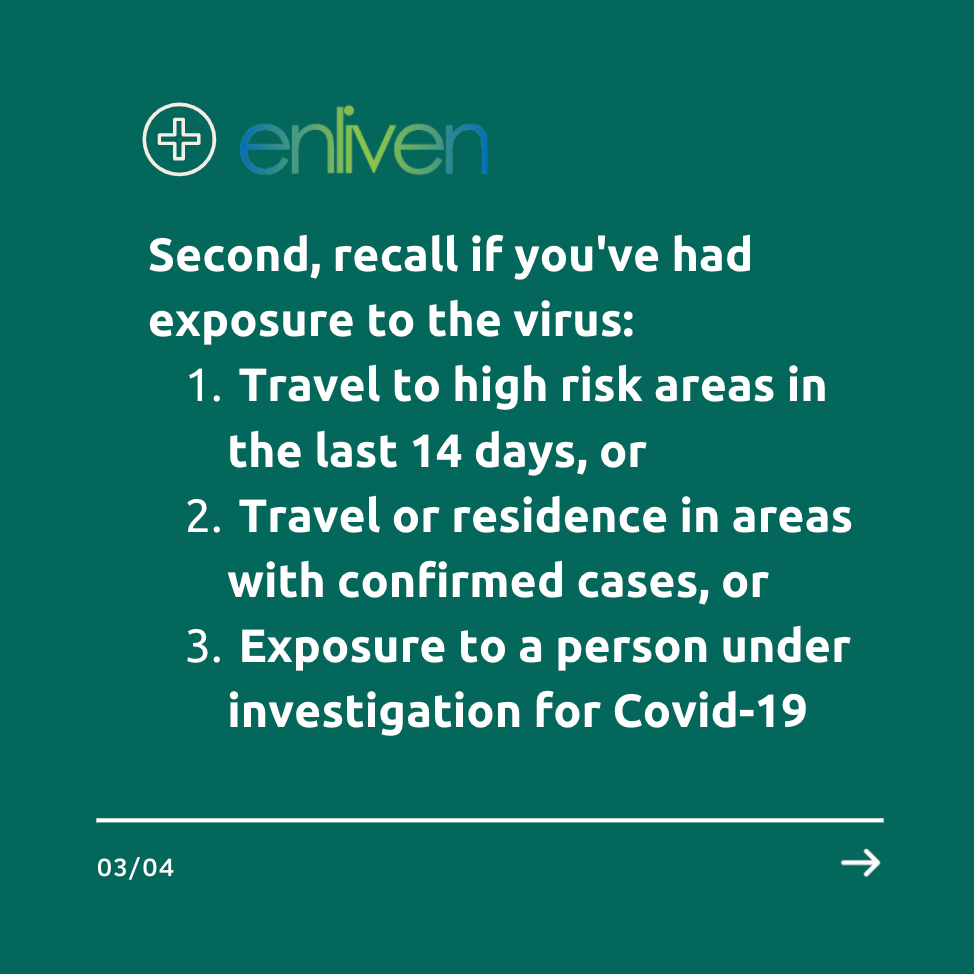
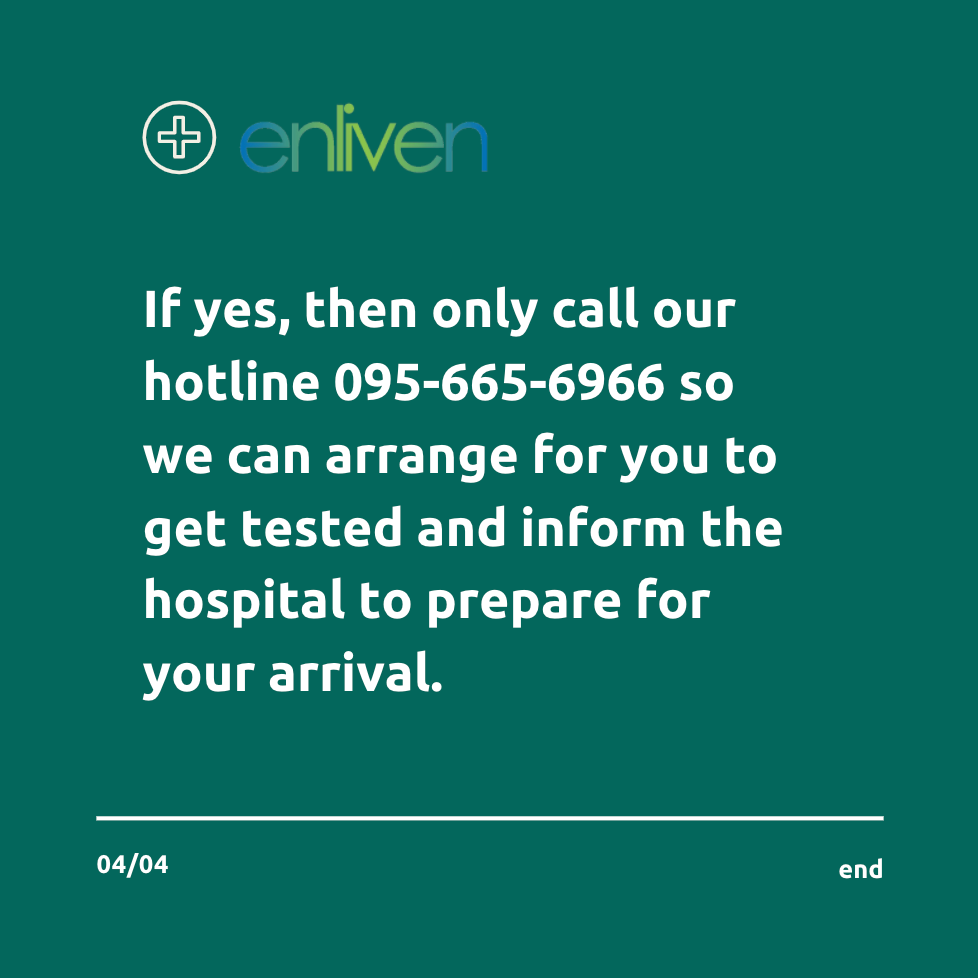
– by Pirunrat Nathchayanonth (Yori), Client Coordinator
My children have Covid-19.
That’s not a sentence I thought I would be writing. My children have… tantrums, wrestling matches, a love for too much chocolate, more screen time than recommended. That’s what lockdown life in the pandemic has meant for us.
When their test results came back positive my initial reaction was: “If Covid doesn’t kill their nanny first, I will kill her myself.” I wept at the unknowns of this virus that could mark the lives of a two- and four-year-old that didn’t ask for any of this.
Our nanny had tested positive for Covid a few days earlier after experiencing terrible symptoms of fever, body aches and chills. Our house scrambled into action (of our own social responsibility as the BMA-operated hospital that diagnosed her did not track nor trace us for further testing – but that’s a different story). I decided to swab only the adults who had come into contact with her to avoid putting our young children through an uncomfortable and invasive procedure.
We received the results of our PCR test after a tense, sleepless night on a Sunday morning. All four adults were confirmed negative for the novel – but awful – coronavirus. We rejoiced! We talked about having a Covid-free party (joking only). Instead we ordered pizza and sensibly ate it privately in our home while relishing knowing we had escaped this disease for one more day.
That night my four-year-old son began having a fever. It’s probably some random illness related to the weather change, I told myself. If I – his mother – who shares more saliva air time with him than anyone in this world was Covid-negative there was no way he could have contracted it. Right? My denial was shook the next morning after he threw up the contents of his breakfast.
That afternoon my two-year-old daughter woke up from her nap with a fever. There could be no further delay – we arranged to get them tested the next day.
The private hospital called us two hours later around 11:30am with the children’s positive results. A hospital van – the sterile, plastic, cold Covid-mobile – would be picking us up at our residence around 3pm the same day to enter government-mandated isolation. Since the kids symptoms weren’t extremely severe they placed us in a “hospitel” for monitoring and treatment if necessary. My husband and I – although we tested negative – would be able to stay to take care of the kids due to their young age, a privilege that is not afforded to everyone but a health risk for us as well.
The swiftness of the hospital to remove my two positive blights from the general population must be commended. I never had a choice anyway. Home quarantine was not an option. At the time of writing, Thai government regulations decree that those who test positive via a PCR test must isolate for a minimum of 14 days at a hospital, field hospital or “hospitel”. That meant where and how my children would be cared for was out of my hands.
Every day we are bombarded with statistics of those who have contracted Covid. At first the numbers may have been faceless but I venture to say that everyone reading this now has probably been directly or indirectly affected by a Covid patient. Since the so-called third wave began in April 2021, the numbers reaching over 200,000 cases have only been increasing and the sought-after hospital beds only decreasing. Every so often we read that hospitals are temporarily suspending Covid testing because they simply don’t have the space and support to take in infected patients.
“We have been working with our private hospital partners to ensure all our patients get hospital beds once tested positive. There is a limited number of beds available, and the law currently states that anyone who tests positive is to be allocated a hospital bed. The situation we have now is that the severe patients are waiting for beds occupied by mild patients. If we prioritise patients with severe symptoms, the load on the already stressed healthcare system would be lessened, and the patients who truly need to be in the hospital to receive care would have a higher chance of getting a bed,” states Devi Bajaj, co-founder of Enliven Health Concierge, a local healthcare liaison that facilitates the medical care of patients.
Being here in a quarantine that was chosen for my children is adding a different layer to the crisis surrounding the pandemic. Why wasn’t the option for those with mild symptoms to self-isolate at home part of the initial plan to ease the burden on the healthcare system?
Every morning a nurse makes her rounds to our floor to check my children’s oxygen levels and temperature. We can hear the crinkling of her plastic PPE suit before she even reaches our door. Behind her N-95 mask layered with a face and hair shield is a healthcare worker doing 12 hour shifts. We want to feel reassured that she is here to ensure the optimal health of my children; but then we remember it’s Covid – she doesn’t want to come within six feet of us if she can help it.
Her gloves and feet coverings are securely and excessively taped to the protective gear so that not one cell of her skin is exposed to those with the virus. After she checks the patients on the floor, she must return downstairs, strip off all her equipment and the clothes underneath, take a shower and put on new clothes and a new suit again. After they escort a new patient in, the nurses must bathe and change their clothes as well. Some healthcare workers here say they can last maximum two hours in the suit, but they are stifled and stuffed underneath. I see droplets of moisture forming inside the plastic protecting the nurse’s feet and tension in the face behind her barriers.
A paediatrician at a leading private hospital in Bangkok, speaking on the condition of anonymity, offers insight into the government-mandated quarantine: “The number 14 is the guideline experts are using for the whole country to track [Covid] symptoms and its contagion. If patients go back home we cannot control their quarantine and ensure they will stay home. There are economic factors for lack of [home] quarantine here. Not everyone can stay home for 14 days because they need to go out and make money.”
The construct of “home” is different based on your status. Within one night of being removed from our surroundings, I felt my children would suffer far worse consequences being holed up for 14 days in an uncommon environment than if they were allowed to safely isolate at our house.
I started making calls to their doctors and various hospital representatives that if the children’s X-rays and blood tests came back optimistic and their symptoms decreased, we wanted to responsibly and legally pursue the option to go back home and finish up the days left of our quarantine. The answer has been a hard no.
The blanket regulation of government-ordered isolation surrounding all Covid patients completely eliminates mental health support for adults and children. It also doesn’t take into account socioeconomic factors for those who can’t afford to be removed from their lives for two weeks or to work from home. That’s why many are not opting to get tested officially at hospitals so they can continue to try to earn to support themselves and their family.
This government policy is also a direct insult to their confidence of the Thai people; do they believe we are all so untrustworthy that we think being in “quarantine” means we can still walk to 7-Eleven and buy a hot dog?
But in a pandemic there is no room for individuals; only statistics to do what is deemed best for the greater good.
As the government continues to propose misguided lockdown measures, delayed and limited vaccines and general miscommunication, their insistence of state-controlled quarantine and lack of other options is coming at the risk of the population’s sanity.
“Patients do need open air and sunlight. If we can provide that safely, it would be good in this crisis. As more kids are getting Covid, they need more support. A hospital’s job is to make the children’s ward as similar to home as possible and parents must make sure [their kids] don’t feel like they are being punished. We need a better solution for the safety of everyone in the realm of mental health,” the paediatrician adds.
We try not to count the days. My son drives his toy police car around the bed over and over. He doesn’t realise we are actually the ones being jailed.

